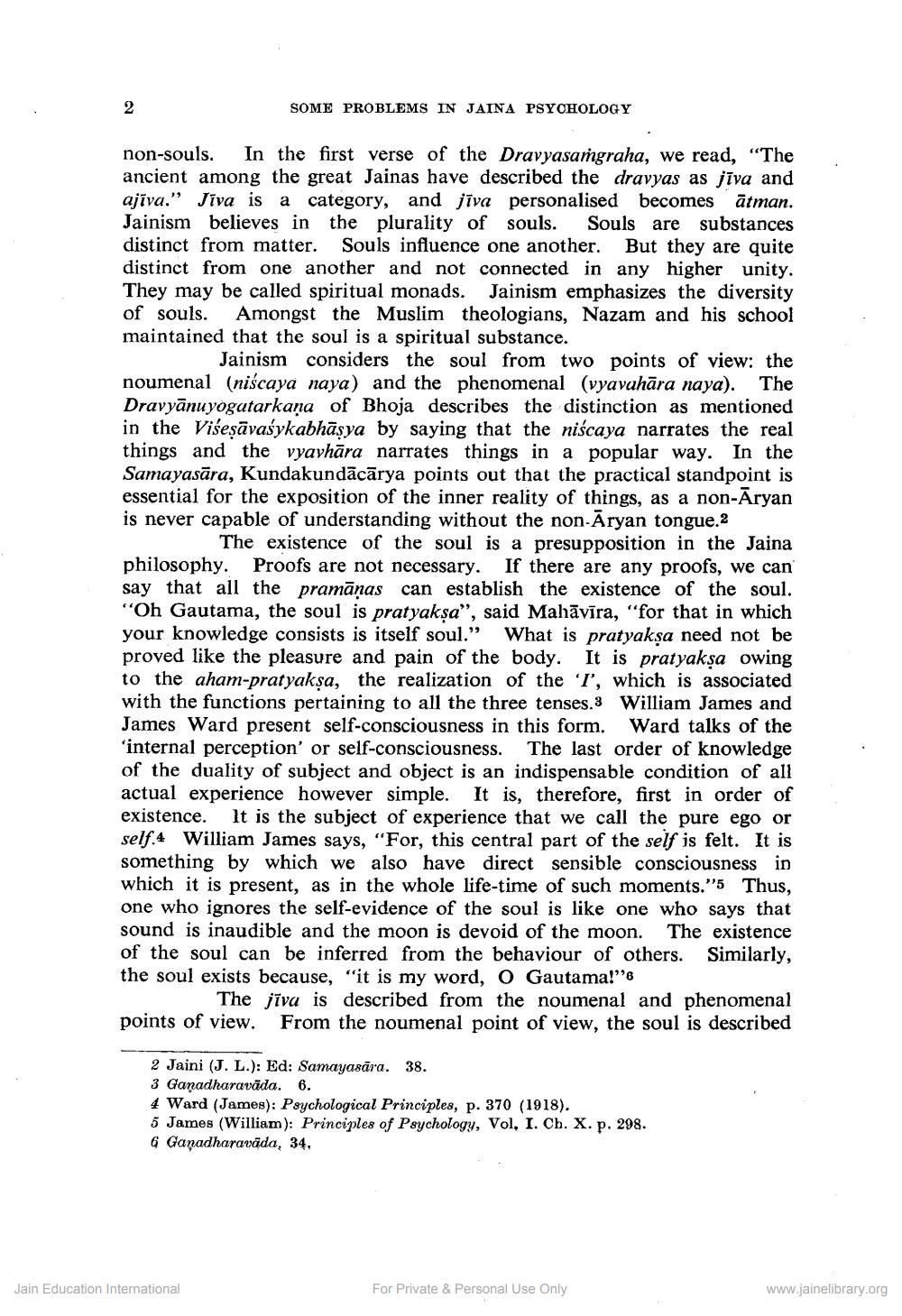________________
SOME PROBLEMS IN JAINA PSYCHOLOGY
non-souls. In the first verse of the Dravyasaṁgraha, we read, “The ancient among the great Jainas have described the dravyas as jīva and ajīva." Jiva is a category, and jīva personalised becomes ātman. Jainism believes in the plurality of souls. Souls are substances distinct from matter. Souls influence one another. But they are quite distinct from one another and not connected in any higher unity. They may be called spiritual monads. Jainism emphasizes the diversity of souls. Amongst the Muslim theologians, Nazam and his school maintained that the soul is a spiritual substance.
Jainism considers the soul from two points of view: the noumenal (niscaya naya) and the phenomenal (vyavahāra naya). The Dravyānuyogatarkaņa of Bhoja describes the distinction as mentioned in the Viseșāvasykabhāşya by saying that the niscaya narrates the real things and the vyavhāra narrates things in a popular way. In the Samayasāra, Kundakundācārya points out that the practical standpoint is essential for the exposition of the inner reality of things, as a non-Aryan is never capable of understanding without the non-Aryan tongue.2
The existence of the soul is a presupposition in the Jaina philosophy. Proofs are not necessary. If there are any proofs, we can say that all the pramānas can establish the existence of the soul. “Oh Gautama, the soul is pratyaksa”, said Mahāvīra, "for that in which your knowledge consists is itself soul." What is pratyaksa need not be proved like the pleasure and pain of the body. It is pratyakşa owing to the aham-pratyakşa, the realization of the T', which is associated with the functions pertaining to all the three tenses.3 William James and James Ward present self-consciousness in this form. Ward talks of the 'internal perception' or self-consciousness. The last order of knowledge of the duality of subject and object is an indispensable condition of all actual experience however simple. It is, therefore, first in order of existence. It is the subject of experience that we call the pure ego or self 4 William James says, "For, this central part of the self is felt. It is something by which we also have direct sensible consciousness in which it is present, as in the whole life-time of such moments."5 Thus, one who ignores the self-evidence of the soul is like one who says that sound is inaudible and the moon is devoid of the moon. The existence of the soul can be inferred from the behaviour of others. Similarly, the soul exists because,"it is my word, O Gautama!''
The jīva is described from the noumenal and phenomenal points of view. From the noumenal point of view, the soul is described
2 Jaini (J. L.): Ed: Samayasāra. 38. 3 Ganadharavāda. 6. 4 Ward (James): Psychological Principles, p. 370 (1918). 5 James (William): Principles of Psychology, Vol. I. Ch. X. p. 298. 6 Gañadharavāda, 34.
Jain Education International
For Private & Personal Use Only
www.jainelibrary.org




